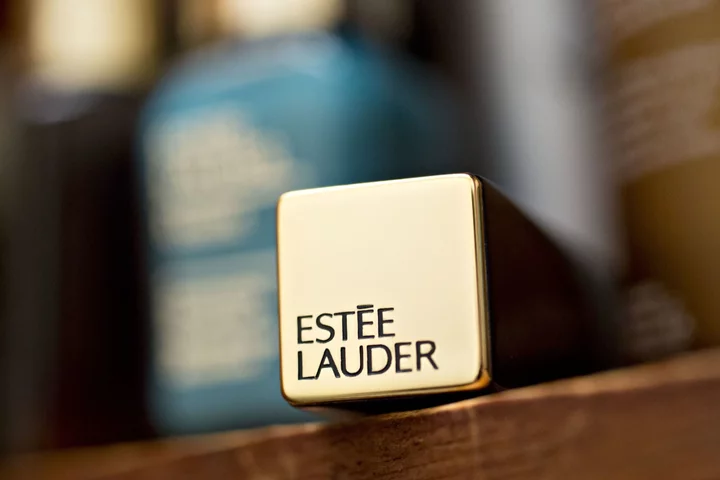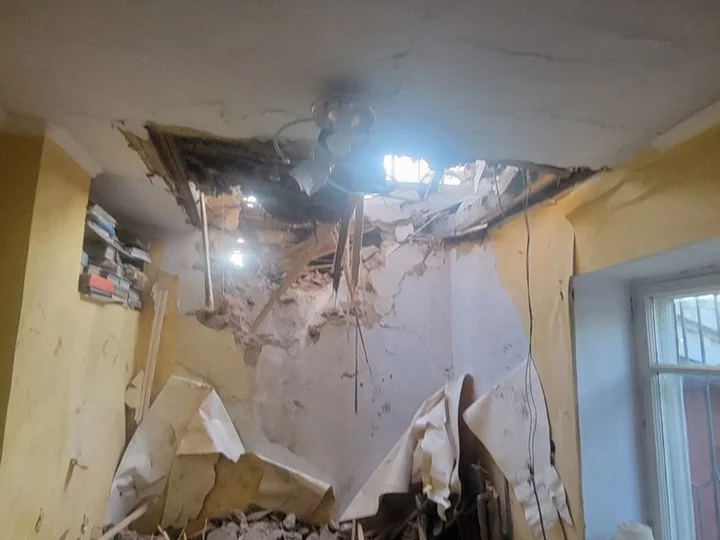Estée Lauder Cos. Chief Financial Officer Tracey Travis defended the beauty company’s plans to turn around its business on Wednesday and cited “unprecedented volatility” as executives cut the outlook for the fourth time in the last 12 months.
The company’s decision to slash its full-year forecast — again — caught Wall Street off guard as it became clear the company hasn’t been able to get a handle on plunging sales at its duty-free shops across Asia.
Shares plunged by as much as 21% on Wednesday, hitting their lowest point since August 2017. The stock had already fallen 48% this year through Tuesday, as investors and analysts grow impatient with management’s promises to get its beauty business back on track.
“I can understand that,” Travis said, when asked about those concerns in an interview with Bloomberg News. “This is highly unusual for us.”
Travis said sales in the Americas and elsewhere were starting to pick up and that “progressively improving consumption” is giving executives “encouragement that we will continue on this path to recovery, at least at the pace that we guided to today.”
Floundering Sales
The owner of the MAC and Tom Ford brands has been floundering as customers aren’t spending as much as they were pre-pandemic in the travel shops that sell its fragrances, makeup and skin-care products across Asia. Consumers in mainland China have come back to the brands more slowly than expected and, now, added pain from the Israel-Hamas war stands to hit its Middle East business.
Estée Lauder on Wednesday was among the first consumer businesses in the US to quantify the impact of the immediate Israel-Hamas war on consumption, predicting a slight drop in revenue in the current quarter attributable to the conflict. While Europe, the Middle East and Africa account for 40% of the company’s overall revenue, Israel and the Middle East generate only a little over 2%, Travis said. The company’s stores in some malls in Israel are beginning to reopen this week, but the company expects softer sales across the region.
In the past 12 months, Estée Lauder has lowered its full-year outlook four times — in November 2022, February, May and then again on Wednesday. In August, the company issued new guidance for its current fiscal year that was well below analysts’ estimates, including a decline in net sales of between 10% to 12% for the three-month period through the end of September.
Freda Responds
In response to the weakness in the business, Chief Executive Officer Fabrizio Freda on Wednesday said the company would accelerate and expand a previously announced recovery plan to rebuild its margins, including boosting its offering of luxury skin care and fragrances. “We expect calendar year 2023 to be the final and, frankly, painful post-Covid reset period for the company,” Freda said.
Still, some analysts remain skeptical.
“The big question, like last quarter, and the one before it, will be: ‘Is this the final cut?’” Bernstein analysts led by Callum Elliott wrote in a research note.
While Estée Lauder’s recovery plan provides some helpful details on how the company intends to bounce back from its current weakness, “there are still a lot of open questions,” Barclays analyst Lauren Lieberman said in an interview. “The questions on top-line growth are going to nag,” she added, including the magnitude of the recovery in duty-free sales in Asia.
Lieberman said she welcomed the company’s efforts to cut production in the short term and its plans to reset the amount of inventory it holds by using better forecasting tools and building out regional supply chains to deliver goods more quickly. “That’s a positive and a ‘finally.’”
Read More: Estée Lauder Is Falling Behind Rivals, Even on Home Turf
Turnaround Plan
As Estée Lauder attempts to convince investors and analysts that it can return to its pre-pandemic growth trajectory, Travis said the company’s turnaround plan was focused on two avenues: launching new luxury products, and cutting items and reducing other costs that have bogged down the business. Meanwhile, the company will continue to raise prices to partially offset high inflation, she added.
Estée Lauder’s namesake brand and its La Mer brand are preparing “big launches” of luxury products in the second half of the current fiscal year, Travis said, which are typically more profitable than those geared to the mass market. The company is also preparing a new fragrance line with high-end fashion house Balmain for the middle of next year.
At the same time, the New York-based beauty company is planning to cut the variety of existing products, as a way to streamline its offering and as one way to reduce production.
Travis told analysts on an earnings call that the company’s production units are down about one-quarter compared with a year earlier. Those production cuts, she said in the interview, are aimed at aligning sluggish travel-retail demand in Asia with supply that’s still too high. “The pullback in production is really to allow us to draw down that inventory,” she said.
The company is also re-evaluating items that aren’t yet for sale. “We are aggressively looking at our three-year innovation pipeline and cutting some of that innovation before it comes to market,” Travis said.
Estée Lauder is also slowing the pace of existing hiring, she said, given the company’s recent performance. Travis said the company will have a “fuller plan” in February, detailing the changes for analysts and investors. The greatest financial impact from the measures will be seen in the company’s fiscal years 2025 and 2026, she added.









